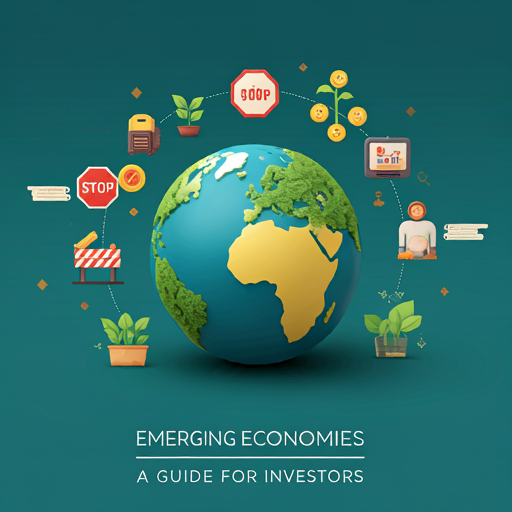Introduction to Emerging Economies
Definition and Characteristics
Emerging economies are nations with developing markets. They often experience rapid growth and industrialization. This growth presents unique investment opportunities. Investors should pay attention to these markets.
Key characteristics include:
Investing in these economies can be rewarding. However, precaution is essential.
Importance in the Global Economy
Emerging economies play a crucial role in the global economy. They contribute significantly to global GDP growth. This growth is often driven by increased consumer spending. He recognizes the potential for substantial returns.
Key factors include:
He believes that understanding these dynamics is essential. Investors should remain vigilant and informed.
Current Trends in Cryptocurrency Adoption
Growth of Blockchain Technology
Blockchain technology is rapidly evolving and gaining traction. It offers enhanced security and transparency in transactions. This innovation is reshaping various industries, including finance. He sees significant potential for disruption.
Key trends include:
He believes these advancements will drive further adoption. Investors should stay informed about these developments.
Increased Interest from Retail and Institutional Investors
Retail and institutional investors are increasingly entering the cryptocurrency market. This shift is driven by the search for diversification. Many see cryptocurrencies as a hedge against inflation. He notes the growing acceptance of digital assets.
Factors influencing this interest include:
He believes this trend will continue. Investors must remain vigilant and informed.
Opportunities for Investors in Emerging Markets
Access to Untapped Markets
Emerging markets present significant opportunities for investors seeking untapped potential. These regions often exhibit rapid economic growth and increasing consumer demand. He recognizes the potential for high returns in these markets.
Key aspects include:
He believes that strategic investments can yield fruitful results. Investors should conduct thorough market analysis.
Potential for High Returns
Investing in emerging markets offers substantial potential for high returns. These markets often experience rapid economic growth, outpacing developed economies. He notes that early investments can yield significant profits.
Key factors contributing to this potential include:
He believes that informed investment strategies are crucial. Investors should analyze market trends carefully.
Challenges Faced by Investors
Regulatory Uncertainty
Regulatory uncertainty poses significant challenges for investors in emerging markets. Inconsistent regulations
Market Volatility and Risks
Market volatility presents considerable risks for investors in emerging markets. Fluctuations in currency and commodity prices can lead to unpredictable returns. He understands that this unpredictability can deter investment.
Several factors contribute to this volatility:
He believes that risk management strategies are essential. Investors should remain cautious and informed.
Case Studies of Successful Investments
Notable Cryptocurrency Projects in Emerging Economies
Several notable cryptocurrency projects have emerged in developing economies, showcasing innovative solutions. For instance, a blockchain-based remittance service in Southeast Asia has significantly reduced transaction costs. He highlights the efficiency of such platforms.
Key examples include:
He believes these projects demonstrate the potential of cryptocurrencies. Investors should consider their impact on local economies.
Lessons Learned from Past Investments
Investors can derive valuable insights from past investments in emerging markets. Analyzing successful projects reveals critical factors for success. He emphasizes the importance of thorough due diligence.
Key lessons include:
He believes that these lessons are essential for future investments. Investors should apply these insights strategically.
The Future of Cryptocurrency in Emerging Economies
Predictions for Market Growth
Market growth in emerging economies is expected to accelerate significantly. Increased adoption of blockchain technology will drive this expansion. He anticipates that more businesses will integrate cryptocurrencies.
Key factors influencing this growth include:
He believes that these trends will shape the future landscape. Investors should monitor these developments closely.
Strategies for Navigating Challenges
Navigating challenges in emerging cryptocurrency markets requires strategic approaches. Diversification of investment portfolios can mitigate risks effectively. He emphasizes the importance of spreading investments across various assets.
Key strategies include:
He believes that adaptability is crucial for success. Investors must remain flexible and responsive to changes.
